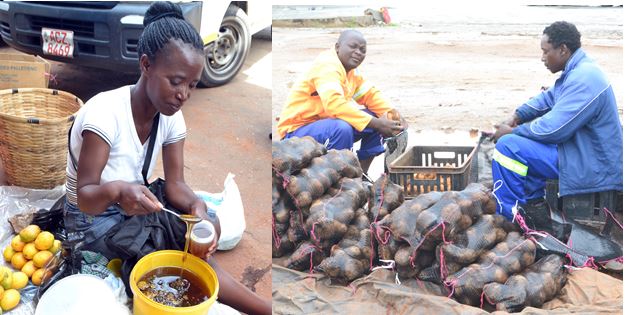The world over, many resources are spent on conferences, agricultural shows and summits like the recent Forum on China-Africa Cooperation (FOCAC) held in the first week of September 2018 in China. However, what happens before and after these events is more important. On the other hand, while funders and development agencies continue to determine socio-economic research agendas in most developing countries, grassroots communities of practice and informal markets are becoming fundamental sources of practical research ideas.

Addressing under-representation in research
Researchers keen to broaden their knowledge of natural products have to visit informal markets where natural and wild food products are often found. Such foods are often not found formal centres of commerce such as supermarkets. In a rapidly changing climate, research that does not extend its inquiry to natural and wild products generates lopsided solutions. Careful attention to what happens in local communities and informal markets can reveal issues that are under-represented in traditional research. It can also assist in assessing existing knowledge and translate it in ways that governments and local authorities can use to develop and implement policies.
Since government departments and development agencies do not have all the needed skills, knowledge, expertise and resources, leveraging the strengths of local communities and the private sector is critical. Unfortunately, policy making in most developing countries is based on passive documents and reports that are difficult to translate into a practical and usable body of knowledge. Changing consumer and health needs, growing public expectations, and ambitious new socio-economic goals are raising the bar for decision making institutions and systems to produce better outcomes and socio-economic value.
To address knowledge gaps, what is needed are high-quality knowledge systems that harness advantages in each given context. This means co-creating knowledge that is valued and trusted by local people as they respond to changing needs and situations. Too much information is meaningless if it does not inform better decisions and improved standard of living. To this end, researchers who want to improve the quality of their outcomes should not just rely on textbooks or peers but embrace alternative sources of experience and expertise.
Knowledge quality assurance system
Just as there are institutions and processes responsible for enforcing the quality of goods, products and services in each country, there should be a dynamic quality assurance system for all forms of knowledge critical in driving a knowledge economy. This is different from the examination board which focuses mainly on certification within formal education systems. Without high quality practical knowledge and wisdom, a poor country will take several decades to transition into a middle income economy. A critical role of a national knowledge quality guarantee mechanism is building and specifying different levels of competences and experiences that citizens can access and anticipate.
Sources of better questions
African researchers can benefit from informal markets that are becoming sources of better questions which lead to better answers, which in turn lead to better conversations. Informal markets tend to be incubators of conversational wisdom in ways that enhance humanity, skills and awareness. Being human means farmers, traders, consumers and other actors share meaningful insights and connect on a more human level. This enables actors to talk more about their passions, what they love about their work, and what will make their work more meaningful. Being skilled means they go into conversations with head, heart and gut. They become more willing to share feedback, think about critical questions they would like answered, and ensure every conversation is a dialogue rather than a debate or monologue. Better conversations contribute to better quality of commodities in the market, better agricultural practices, better entrepreneurship and better socio-economic outcomes.
Raising and sustaining awareness
Through conversations in the market, some farmers become aware of new commodities they never thought existed and could grow in their community. Sharing what they notice in the market, telling stories and voicing their opinions builds the confidence of value chain actors to become true to their values and what is important to them. This can be a source of meaningful inquiry for researchers, leading to improved business outcomes, better ideas and practical solutions. Formal education is meaningless if researchers are not able to translate their research results into better socio-economic outcomes. In order to be considered credible knowledge brokers, researchers have to be coherent.
Major challenges faced by researchers in collecting and analyzing data range from information gaps to information overload to legal restrictions on data gathering. In a world increasingly exposed to political extremes, fake news and disinformation, it is becoming increasingly critical to ensure agricultural markets get proper attention and expertise. Access to innovative capabilities in communities of practice such as informal markets has never been so important. Informal markets are good at harnessing every participant’s collective strength. Where formal institutions conduct research in silos, informal markets are more holistic in harnessing diverse worldviews from farmers, traders, consumers, transporters and many other actors.
charles@knowledgetransafrica.com / charles@emkambo.co.zw / info@knowledgetransafrica.com
Website: www.emkambo.co.zw / www.knowledgetransafrica.com
eMkambo Call Centre: 0771 859000-5/ 0716 331140-5 / 0739 866 343-6
